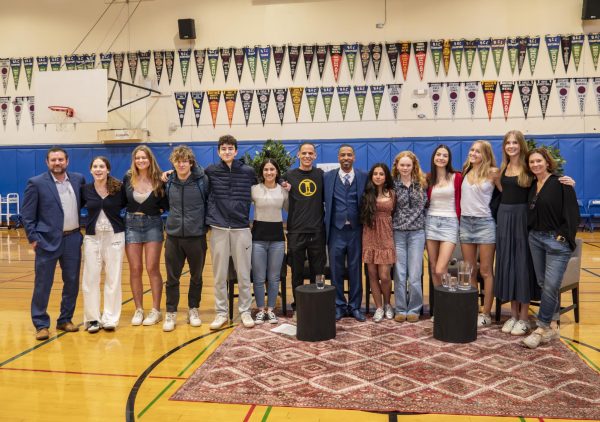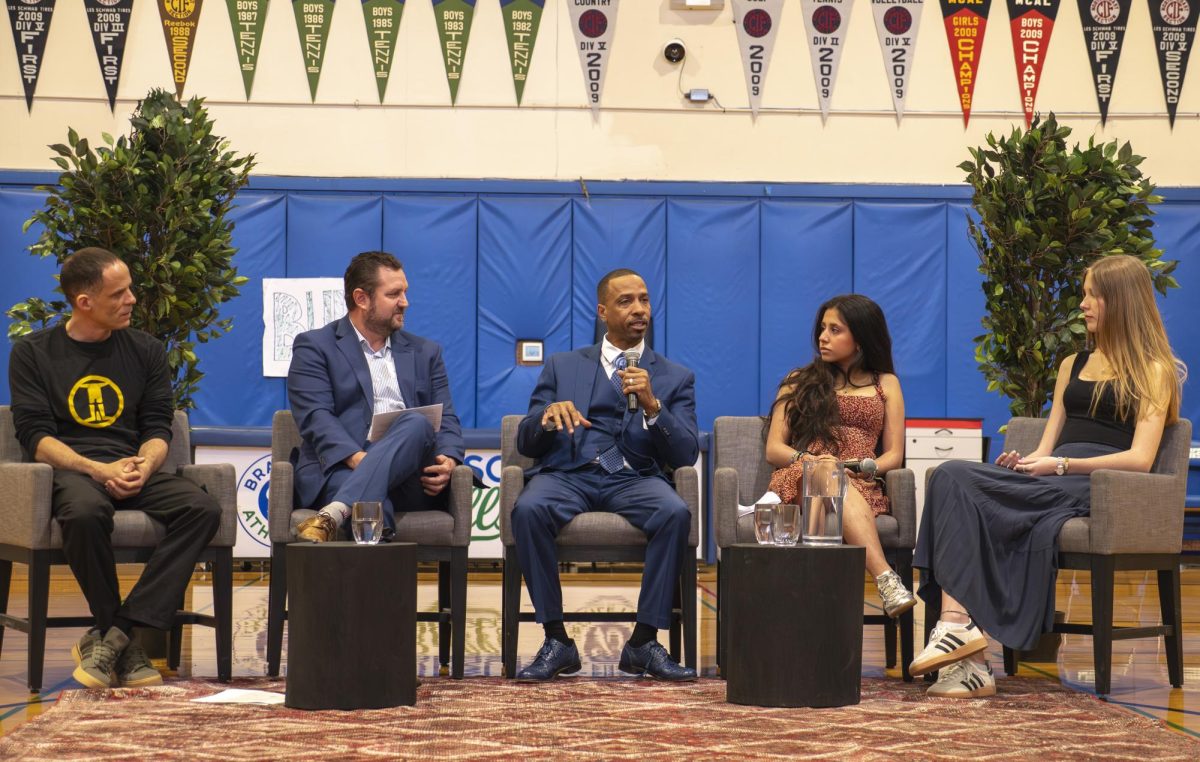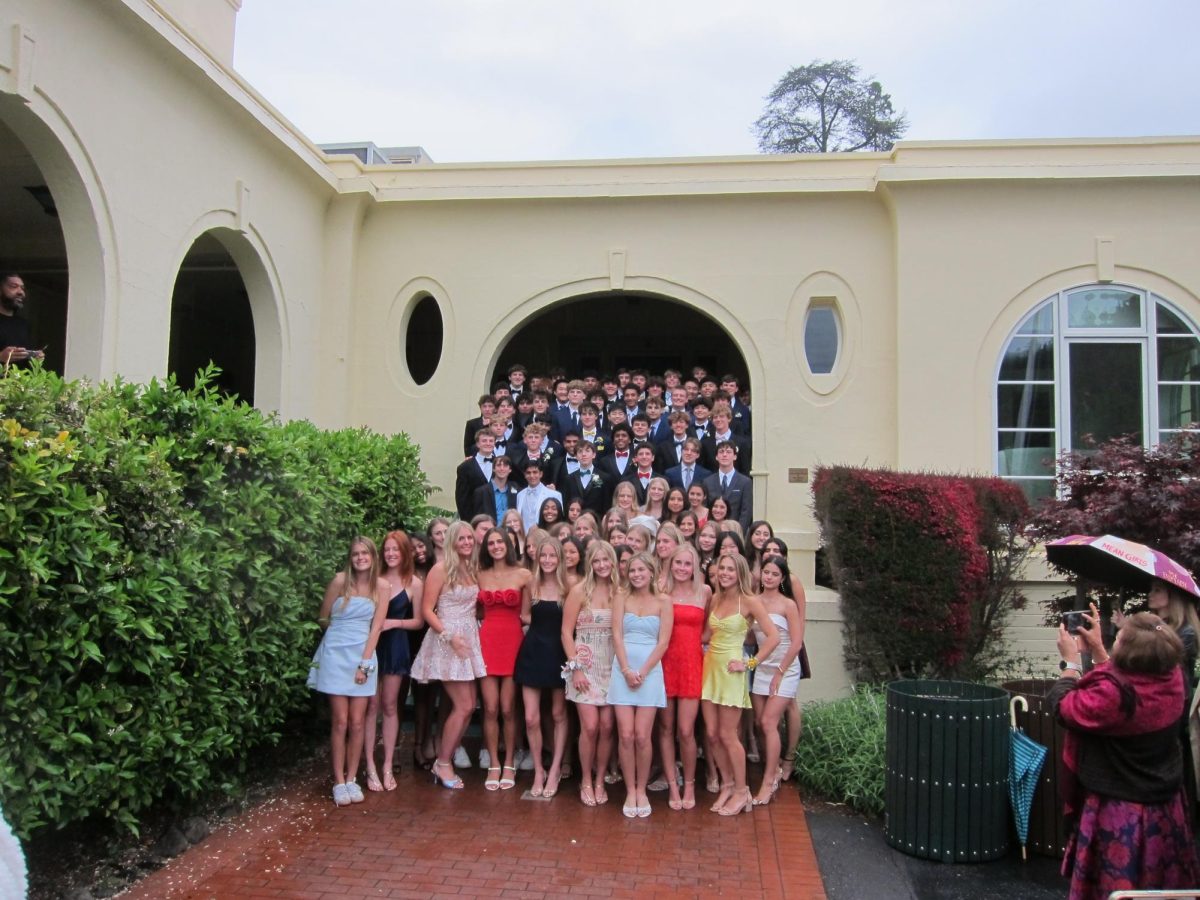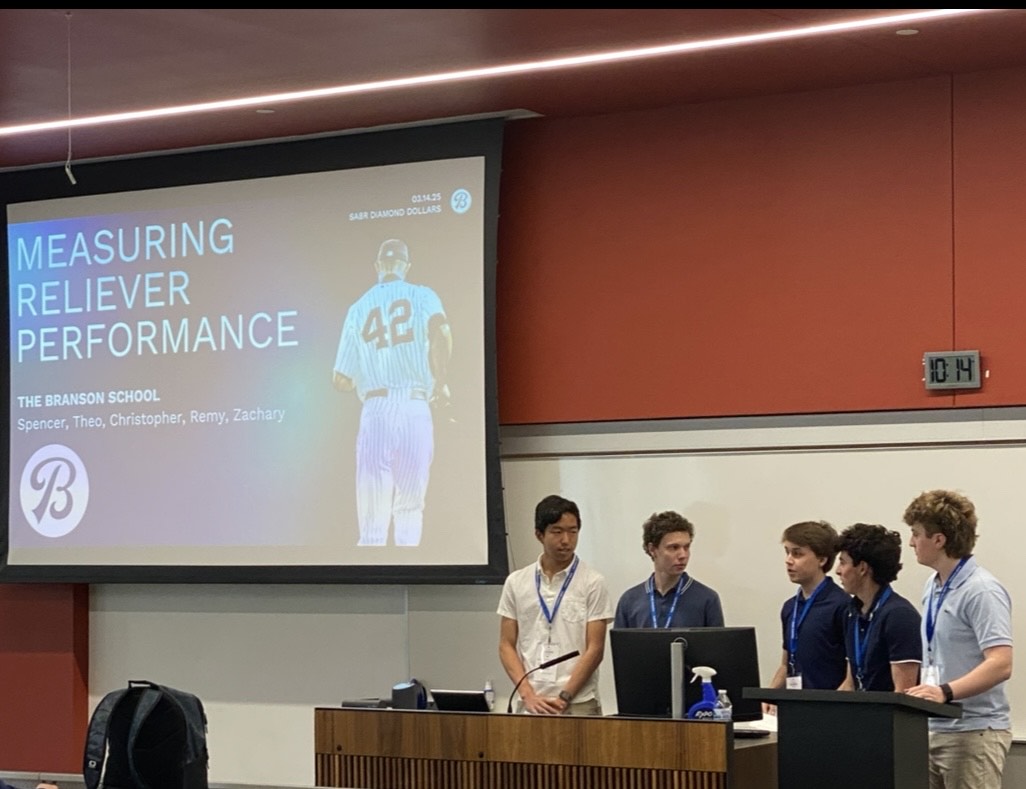Obie Anthony III sat in a Los Angeles courthouse in September 2011. It was the 11th and final day of the evidentiary hearing that would determine whether or not he would be released from prison.
“Just say it,” Anthony said he was thinking. When the judge announced the final verdict, Anthony dropped his head on the table in a moment of immense relief. After 17 years of wrongful conviction, he had finally been exonerated.
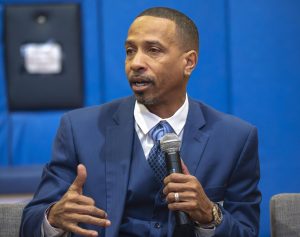
Anthony shared his story with the Branson community in a special assembly Feb. 28, speaking to his years of imprisonment and how the Northern California Innocence Project, a nonprofit organization, helped exonerate him.
Anthony was convicted of murder and attempted robbery in 1995 when he was 19 years old, despite there being no physical evidence that connected him to the crime. The evidence used against him was the false testimony of convicted killer and pimp John Jones.
“It felt like the door’s closing and you’re supposed to be inside it,” Anthony said about his arrest. “I was afraid of where I was stuck.”
He went into prison without a support system. His mother had just passed away the year before, and though he had three older siblings, they didn’t communicate with him.
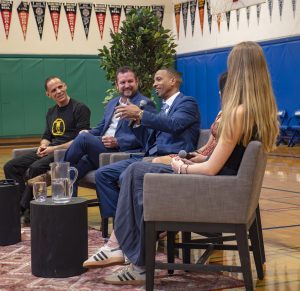
“One of the things that was tremendously impacted by their actions was my relationship with my family,” he said.
His siblings didn’t know what to say to him and were unable to visit him in person because he had been moved to a facility in Northern California, far away from where his siblings lived in Los Angeles.
“To this very day, I don’t talk to two of them, and [my sister] Yolanda and I barely talk too, maybe once or twice a year,” he said.
That lack of communication was a struggle for Anthony and he acknowledged that reflecting on that struggle even today brought up difficult emotions for him.
“I have the opportunity to be strong in other aspects of my life, but when it comes to the regurgitation of what transpired, I have the challenge of being back in the emotions,” he said.
Anthony suffered because of faults in the criminal justice system, though he says it is the fault of certain people working in the system and not the system itself.
“The laws are written in a way to do justice … [but] competition is a disruptor to justice,” he said.
Prosecutors get promotions through conviction rates, which provides an incentive for them to succeed at convicting someone, even if it is at the cost of justice. Despite this, Anthony still believes in the system.
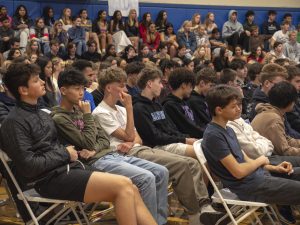
“I have always believed in the system, because justice is what got me out,” he said.
Anthony would have spent the rest of his life in prison if not for NCIP. Anthony’s case was taken on by NCIP in 2008, though it would be another three years before he was released. When he was finally released from prison, he received no government support.
“It was NCIP … they gave me clothes, they gave me food, they gave me cash, they gave me some place to stay. The state or the system has never done anything for me to this very day,” he said. “That’s why I work as hard as I do to make sure that doesn’t happen to somebody else.”
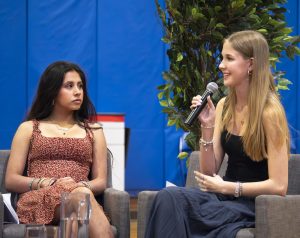
In 2015, Anthony and fellow exoneree Quedellis “Rick” Walker educated legislators and individuals at the state capital about exonerees that were released without support, specifically in California. That work inspired Anthony and Walker to start a nonprofit organization called Exonerated Nation in 2016.
“The work that [NCIP does] to save our lives is tremendous,” Anthony said. “We wanted to help out.”
NCIP has shared its work with the Branson community twice before: once in an assembly on Oct. 9 in which the executive director, Todd Fries, spoke about the organization as a whole, and again on Nov. 19 in an assembly in which co-founder and executive director Linda Starr shared a case study.
Music teacher Jaimeo Brown helped organize NCIP’s visits in the hopes that the Branson community would take interest in their mission. He felt that wish was fulfilled.
“What was great about that initial event was that when Todd Fries gave his presentation, so many members of the community — students, faculty — commented on how interested they were in the subject matter and cause,” Brown said.
This interest was what prompted Anthony’s visit, highlighting for the Branson community an example of the work NCIP does and giving them an understanding of the hardship faced by those it seeks to help.
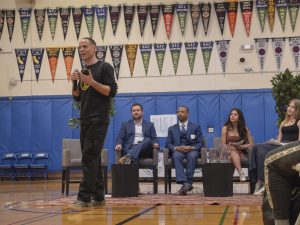
Brown likened listening to Anthony’s story as being given treasure. He said that, like treasure, Anthony’s story was valuable, and that by listening to people who have been through dark experiences unlike your own, you gain important insight and wisdom.
Ella Rubenstein ‘27, one of the student organizers of the NCIP visit, echoed this sentiment.
“I’ve never heard from an exoneree before and I feel like their perspective needs to be shared more,” she said. “Hearing a story like that shows not only the flaws in the judicial system, but also how there are great people, even though there can be a big stigma around people who are formerly incarcerated.”
Adeline Newby ‘26 also helped organize the event and said she felt that she learned a lot.
She said, “I hope in the future we can continue having a partnership with [NCIP] and . . . continue [being] able to bring incredible voices like Mr. Anthony’s to Branson.”
